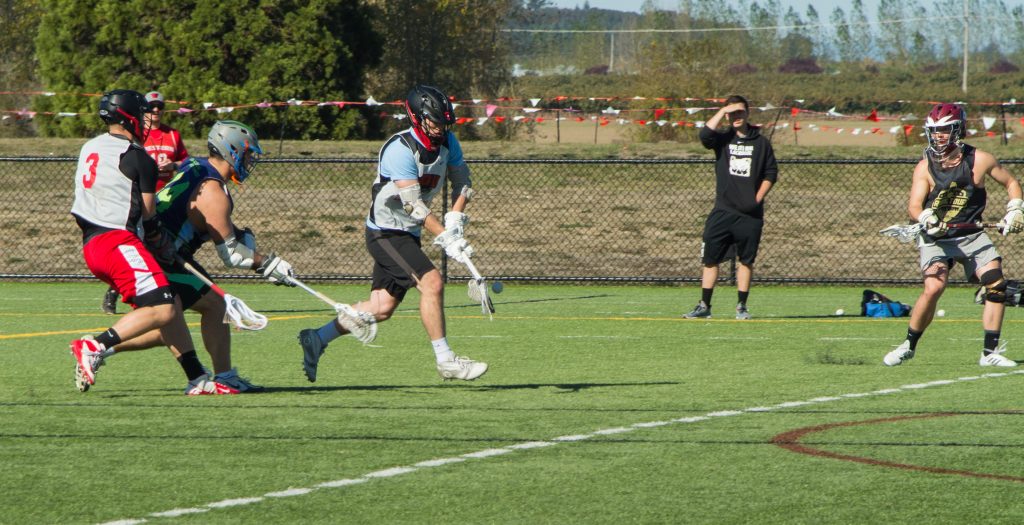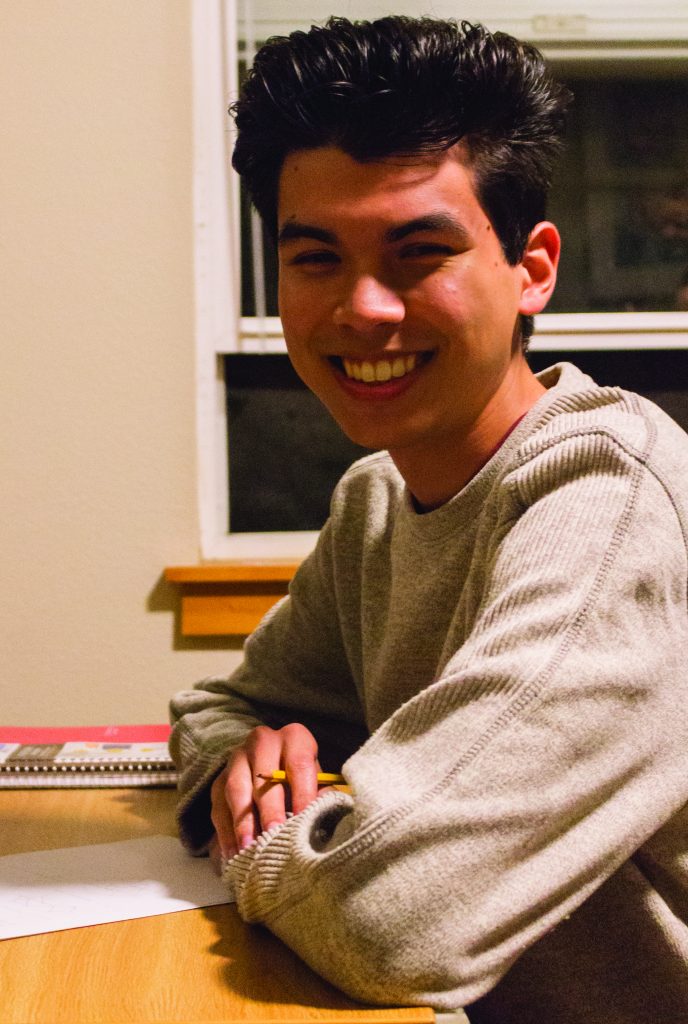Compiled by: The Western Howl staff

Chrys — “The VVitch” (2015). My favorite scary movie has to be “The VVitch.” I remember going to see it in theaters when it came out in 2016. This movie mastered the art of atmospheric horror. I can’t sit through this movie without squirming in my chair, and comfort is an impossibility. The film still remains spooky without excessive use of jump scares, which I really appreciate. The cinematographer Jarin Blaschke and director Robert Eggers have created a visual environment that is dark, anxious, and horrifying. Anya Taylor-Joy is truly at her best and her performance really enhances it to all it’s uncomfortable, horrible glory. I would strongly recommend this film.
Contact the author at cweedon16@wou.edu

Caity — “Halloween” (1978). This movie will never not be my favorite horror flick. It set the precedent for what a slasher film would be, and ushered in a decade of holiday-centered horror films that tried to imitate what this classic did. No matter how many times I watch it, the haunting — but simple — score, matched with the heart-racing scenes, are enough to make this the most memorable scary movie I’ve seen yet. Introducing Jamie Lee Curtis, as director John Carpenter’s nod to Curtis’s mother Janet Leigh, star of “Psycho,” the film helped create the scream queen of slasher flicks. While this movie is a horror masterpiece, the sequels don’t even come close to the original, so I’d recommend only watching the first installment.
Contact the author at chealy16@wou.edu

Bailey — “The Nightmare Before Christmas” (1993). This Disney flick is an innovative story that serves two genres: Christmas movies and Halloween movies. Now a cult classic, “The Nightmare Before Christmas” combines the creative mind of Tim Burton with the musical stylings of Danny Elfman to create a movie that the whole family can enjoy. In fact, there’s even a ride at Disneyland that is made-over with a “ The Nightmare Before Christmas” theme every year. And this year, the lovably misguided Jack Skellington, “Pumpkin King” of Halloween Town, is getting re-released on Blu-ray as a celebration of the film’s 25th anniversary. This funny and frightening tale made over 75 million dollars in the box office, and I would strongly recommend it to anyone.
Contact the author at bthompson15@wou.edu

Kyle — “Hocus Pocus” (1993). During one night of Halloween, three villainous witches made their way back from the dead to bring us the Disney film, “Hocus Pocus.” This cult classic became my favorite Halloween-theme movie when I was a child. It includes the right amount of comedy, horror and music. No matter how many times I watch it, I can never get enough of the Sanderson sisters. It’s as if they put a spell on me. Although meant for children, the director was able to sneak jokes that only adults can understand, so I would strongly recommend this movie to anyone.
Contact the author at kmorden17@wou.edu

Rachel — “Sleepy Hollow”, starring Johnny Depp and directed by Tim Burton, is my favorite Halloween movie. It is based on the legend of the Headless Horseman. It’s a gothic supernatural horror film, although I didn’t find it too scary. It’s about Ichabod Crane, a police constable, who is sent to solve the mystery behind the murders taking place in the town Sleepy Hollow. I would recommend this movie to anyone who likes dark themed movies, without a lot of scares.
Contact the author at rhetzel18@wou.edu

Ashlynn — “Corpse Bride” (2005). “The Corpse Bride” is another classic Tim Burton animation that is perfect for Halloween. It’s not a scary movie, but it does have the right amount of creepiness to celebrate this spine-tingling holiday. This lighthearted movie is perfect for anyone who is like me and loves a good laugh and a happy ending. It is a sweet story of a soon to be groom who gets the jitters. He unknowingly proposes to a corpse and has to figure out how to reverse what he has done. It’s a spoopy film that I always watch on Halloween and highly recommend to others.
Contact the author at anorton17@wou.edu

Becca — “Hush” (2016). What I liked about this movie is that it doesn’t fall into the usual scary movie tropes of having main characters who make terrible decisions that have you yelling at your screen. The main character in this movie is a young Deaf woman who is being stalked in her house by a killer. Unlike many other horror movies, in this one she actually makes smart, methodical decisions and the movie is full of constant suspense. The ending was also unexpected for me. While I usually find myself leaning towards supernatural when watching horror movies, this one stuck out to me.
Contact the author at rmeyers17@mail.wou.edu
Cora — “Halloweentown” (1998). Witches and goblins and skelies, oh my! No Dylan, we’re not in Cleveland, we’re taking the bus to St. Helens, Oregon, a.k.a. “Halloweentown.” Watch as future head of the Cromwell line, “I’m 13…I’m practically a grown-up” Marnie, stumbles through finishing a spell her not-so-responsible grandmother started (before literally walking into a trap) to reverse the evil magic seeping its way into the heart of Halloweentown. Don’t worry about Marnie being the most inept witch ever, her seven-year-old sister Sophie saves the day; and like a true hero gets none of the credit, leaving community health major senior Keith Mathew to cry “what about Sophie?!” With a dash of 90s radical slang, spoopy Halloween hijinks and a wholesome the “true power is love” moral, “Halloweentown” (and its three sequels) should appear in everyone’s Halloween movie marathon.
Contact the author at cmcclain17@mail.wou.edu

Paul — “Scared Shrekless” (2010). Our favorite childhood meme team is back at it again competing to see who can stay in Lord Farquaad’s old castle the longest by telling spooky stories. This short contains three sections that are told as separate stories. Gingy, our lovely little sentient gingerbread man, tells us about how his tumultuous love life led to him getting eaten by a zombie lover. Our friend Boots then tells us about his worst fear which is too intense to mention in such a short review. Finally, Shrek tells us about his experience with Pinocchio’s demonic possession and the mild psychosis that came along with it. Overall, if you need some fun short goofs with your favorite childhood characters you’ll really enjoy this show.
Contact the author at pfdavis14@wou.edu
Photo courtesy of Paul F. Davis














